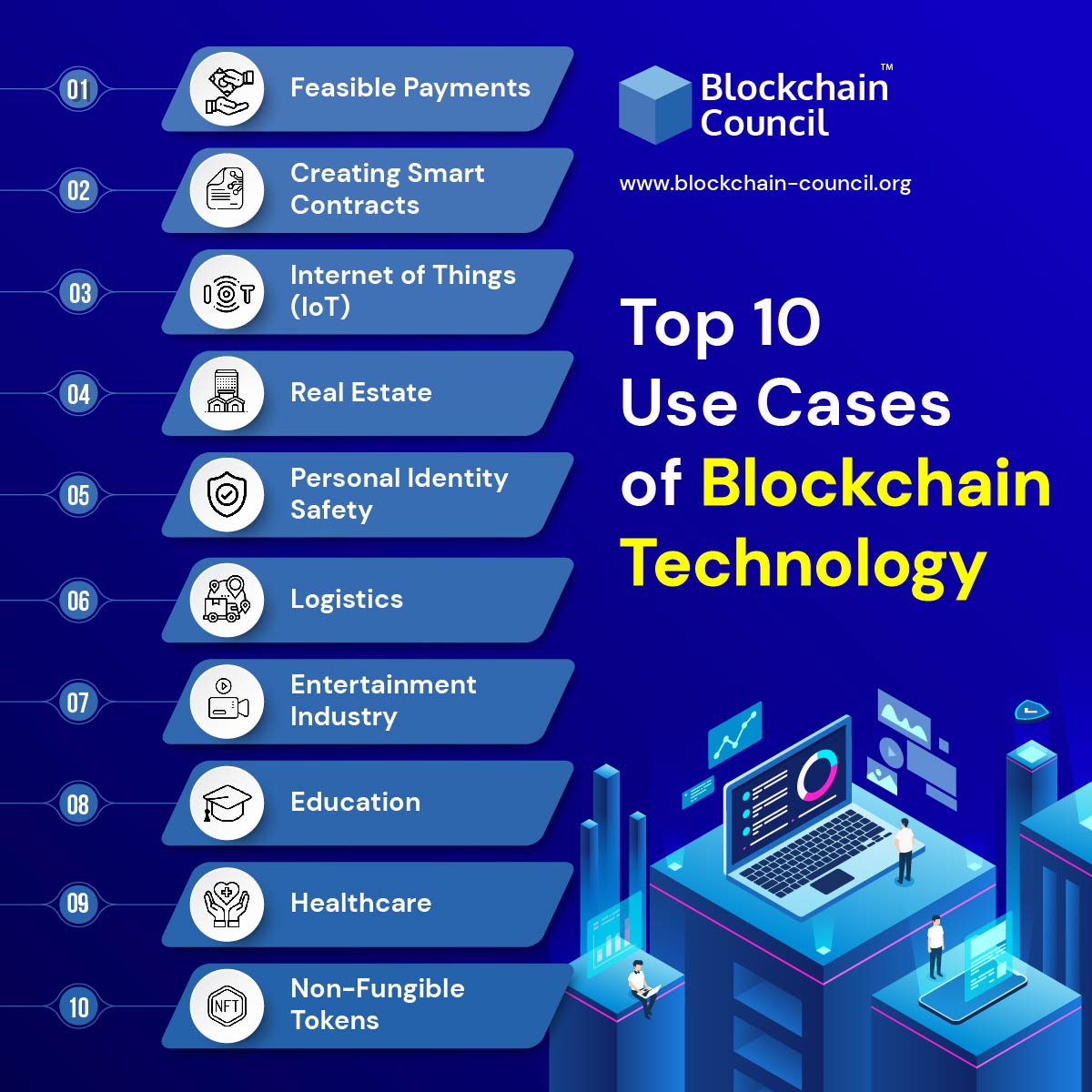Blockchain in the Entertainment Industry: Current and Future Uses

- Introduction to Blockchain Technology
- Blockchain Applications in the Entertainment Industry
- Current Uses of Blockchain in Entertainment
- Challenges and Opportunities for Blockchain in Entertainment
- The Future of Blockchain in Entertainment
- Case Studies of Successful Blockchain Implementations in Entertainment
Introduction to Blockchain Technology
Blockchain technology is a decentralized, distributed ledger system that securely records transactions across a network of computers. It is most commonly known for its association with cryptocurrencies like Bitcoin, but its applications extend far beyond just financial transactions. In the entertainment industry, blockchain technology is being increasingly utilized to revolutionize the way content is created, distributed, and consumed.
One of the key benefits of blockchain technology in the entertainment industry is its ability to provide transparency and security in transactions. By using blockchain, artists, content creators, and consumers can have a direct and secure way to interact with each other without the need for intermediaries. This can help reduce costs, prevent fraud, and ensure that creators are fairly compensated for their work.
Another advantage of blockchain technology in the entertainment industry is its potential to streamline royalty payments and rights management. Smart contracts, which are self-executing contracts with the terms of the agreement directly written into code, can automate the distribution of royalties to artists based on predefined rules. This can help eliminate disputes over payments and ensure that artists receive their fair share of revenue.
Furthermore, blockchain technology can also be used to create unique digital assets, such as non-fungible tokens (NFTs), which represent ownership of a specific piece of digital content. This has opened up new opportunities for artists to monetize their work, as NFTs can be bought, sold, and traded on blockchain-based marketplaces. Additionally, blockchain technology can help combat piracy by providing a secure and immutable record of ownership for digital content.
Overall, blockchain technology has the potential to transform the entertainment industry by providing a more efficient, transparent, and secure way to create, distribute, and consume content. As the technology continues to evolve and gain adoption, we can expect to see even more innovative uses of blockchain in the entertainment industry in the future.
Blockchain Applications in the Entertainment Industry
Blockchain technology has been making waves in the entertainment industry, offering a wide range of applications that can revolutionize the way content is created, distributed, and consumed. One of the key areas where blockchain is making an impact is in the realm of digital rights management. By using blockchain, artists and creators can securely register their work, track ownership, and ensure that they are properly compensated for their creations.
Another exciting application of blockchain in the entertainment industry is in the realm of ticketing. Blockchain technology can be used to create secure and transparent ticketing systems that prevent scalping and fraud. By using blockchain, event organizers can ensure that tickets are sold at fair prices and that only legitimate buyers gain entry to events.
Furthermore, blockchain technology can also be used to create decentralized content platforms where artists can directly connect with their fans, bypassing traditional intermediaries. This can help artists retain more control over their work and earn a fairer share of the profits. Additionally, blockchain can enable the creation of unique digital collectibles, such as limited edition artwork or music, which can be bought, sold, and traded securely on the blockchain.
Overall, blockchain technology has the potential to transform the entertainment industry by providing new ways for artists to monetize their work, connect with their audience, and protect their intellectual property rights. As the technology continues to evolve, we can expect to see even more innovative applications of blockchain in the entertainment industry in the future.
Current Uses of Blockchain in Entertainment
Blockchain technology is making waves in the entertainment industry, revolutionizing the way content is created, distributed, and consumed. The current uses of blockchain in entertainment are diverse and innovative, showcasing the potential for this technology to disrupt traditional models.
One of the primary applications of blockchain in entertainment is in the realm of digital rights management. By using blockchain to create immutable records of ownership and licensing agreements, artists and content creators can ensure that they are fairly compensated for their work. This transparency and security provided by blockchain technology help to combat piracy and unauthorized distribution of content.
Another key use of blockchain in entertainment is in the realm of ticketing and event management. By utilizing blockchain for ticket sales, event organizers can prevent scalping and fraud, while also providing a more streamlined and secure ticketing process for attendees. This can help to create a more seamless and enjoyable experience for fans while also increasing revenue for artists and venues.
Blockchain is also being used to create decentralized marketplaces for digital content, allowing artists to connect directly with their fans and monetize their work without the need for intermediaries. This peer-to-peer model enables greater creative control and financial independence for artists, while also fostering a more direct and personal relationship with their audience.
Overall, the current uses of blockchain in entertainment are just the beginning of what this technology can offer to the industry. As blockchain continues to evolve and mature, we can expect to see even more innovative applications that will further transform the way we create, distribute, and experience entertainment.
Challenges and Opportunities for Blockchain in Entertainment
When it comes to the entertainment industry, blockchain technology presents both challenges and opportunities. One of the main challenges is the resistance to change from traditional players in the industry. Many established companies are hesitant to adopt blockchain due to concerns about security, scalability, and regulatory issues. However, there are also numerous opportunities for blockchain to revolutionize the entertainment industry.
One of the key opportunities for blockchain in entertainment is the ability to streamline royalty payments. By using smart contracts, artists and content creators can ensure that they are paid fairly and transparently for their work. This can help to eliminate disputes over royalties and ensure that creators receive their fair share of revenue.
Another opportunity for blockchain in entertainment is in the area of digital rights management. Blockchain technology can be used to create a secure and immutable record of ownership for digital content, making it easier for creators to protect their intellectual property and prevent piracy.
Additionally, blockchain has the potential to revolutionize the way that content is distributed and consumed. By using blockchain-based platforms, artists and creators can connect directly with their fans, bypassing traditional intermediaries and retaining more control over their work.
The Future of Blockchain in Entertainment
The future of blockchain in the entertainment industry looks promising as more companies are exploring the potential of this technology to revolutionize the way content is created, distributed, and consumed. Blockchain offers a decentralized and secure platform for artists, creators, and consumers to interact without the need for intermediaries. This can lead to greater transparency, fairer compensation for creators, and more direct engagement between artists and their fans.
One of the key areas where blockchain is expected to make a significant impact is in the realm of digital rights management. By using blockchain technology, artists can securely register their work, track its usage, and ensure that they are properly compensated for their creations. This can help reduce piracy and ensure that artists receive their fair share of revenue from their work.
Another exciting application of blockchain in entertainment is the tokenization of assets. This allows artists to create unique digital tokens that represent ownership of their work or access to exclusive content. Fans can purchase these tokens, which can then be traded on digital marketplaces, creating new revenue streams for artists and providing fans with new ways to support their favorite creators.
Overall, the future of blockchain in entertainment is bright, with the potential to transform the industry by empowering artists, creators, and consumers alike. As more companies and artists embrace this technology, we can expect to see new business models, innovative content experiences, and a more equitable distribution of value throughout the entertainment ecosystem.
Case Studies of Successful Blockchain Implementations in Entertainment
Several successful implementations of blockchain technology in the entertainment industry have demonstrated its potential to revolutionize various aspects of the sector. These case studies showcase how blockchain is being used to enhance transparency, security, and efficiency in entertainment operations.
- **Film Financing:** A notable example of blockchain implementation in the entertainment industry is the use of tokenization to revolutionize film financing. By tokenizing assets, filmmakers can raise funds from a global pool of investors, democratizing the financing process and reducing the reliance on traditional funding sources.
- **Royalty Tracking:** Blockchain technology is also being utilized to improve royalty tracking and distribution in the music industry. Smart contracts enable automatic royalty payments to artists based on predefined terms, eliminating disputes and ensuring fair compensation for creators.
- **Ticketing:** Another successful use case of blockchain in entertainment is ticketing. By leveraging blockchain’s immutable ledger, ticketing companies can prevent fraud, scalping, and counterfeit tickets, ensuring a seamless and secure ticketing experience for event attendees.
- **Content Monetization:** Content creators are exploring blockchain solutions to monetize their work directly, bypassing intermediaries and retaining a larger share of revenue. Through tokenization and decentralized platforms, artists can connect with their audience and receive direct payments for their content.
These case studies highlight the diverse applications of blockchain technology in the entertainment industry, offering innovative solutions to longstanding challenges and reshaping the way content is created, distributed, and consumed. As the industry continues to embrace blockchain, we can expect further advancements and disruptions that will redefine the entertainment landscape.





